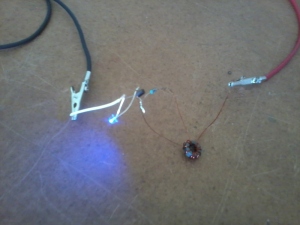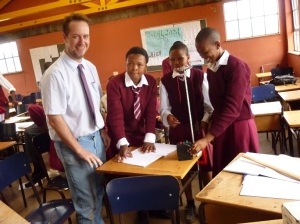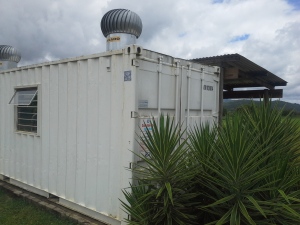education
Getting addicted to making Youtube Videos!
This Youtube Physics revision channel has started to take off. I’ve been lucky in that now is the GCSE exam revision time in the UK so lots of kids are surfing the web for revision material – There is a lot out there! So I am trying to find stuff that has either not been covered or something I can give my style to. I have stopped filming myself with tablet but I am now using an app called Explain Everything – it’s excellent and very easy to use. Also I am trying to keep my videos short as most videos seem to go on way too long – It’s difficult!
Here are a few examples of working with explain everything.
My New Youtube Channel for Physics
I’ve been experimenting recently with using my tablet to record videos of myself teaching. I have made a few videos for A-level and IGCSE Physics. Eventually the ideas is that I will cover all the material but it will take some time. I really want to try flip teaching and see if that is successful. I try and make a few videos of material I am about to teach and will report back on how successful it was.
If you are are a student who wants a revision video for either A-level of IGCSE please send me a message or leave a comment below. I would be more than happy to help. Anyway, here are some examples of what I have done so far.
Any thoughts or feedback would be greatly appreciated..
The Weekend Experiments – Gravity
Do you remember those days at school when your physics teacher would tell you that the strength of gravitational acceleration is 9.8 m/s2? You just took it on blind faith that that was the strength of gravity right? Well, in the first of my Weekend Experiments series we are going to look at a very simple experiment anyone can do to find the strength of gravity in their local area (or planet). All we need is some string, a weight and your mobile phone to do some timings and a few calculations.
Myself and students of St Saviours High School, Leribe, Lesotho performing the Pendulum Investigation – 2010
What you need
A long piece of string – the longer the better
Somewhere to hang it from
A stop watch – just use the one on your phone
A weight – even a small stone will do
And a measuring tape or metre stick
Calculator – again use the one on your phone if desperate
What you do
Tie the weight to the end of the string and hang the piece of string up from the other end (remember the longer the string the better).
Measure the length of the string in metres to the nearest mm if you can.
Let the weight rest down and give it a little push – just a few cm will do.
The weight should now start moving back and forth in a pendulum motion.
Using your stopwatch we need to time how long the pendulum takes to go back and forth (We call this an oscillation). Human beings don’t have great reaction times so I suggest you time 10 swings or more in one go and find an average.
The Calculation
So here comes the maths – don’t freak out.
g = L4π2/T2
L is the length of your string in metres
π is that circle thing equal to 3.142 (approximately)
T is the time taken for one swing
An example
L = 3.56m
T = 3.8 seconds
g = 3.56 x 4 x 3.142 x 3.142 / (3.8 x 3.8)
and I get..
g = 9.73m/s2
not a bad answer with just some basic equipment!
All your education are belong to us..
 What should you do when parents have unrealistic expectations of their children? Recently at school the students received their IGCSE and AS level results. There was very large crowd outside of the principal’s office, crammed full even, with lots of expectant children and parents. Many of the students were being congratulated as they received their certificates and one of the girls fainted when she got her results. One parent asked me if I thought their child would get an A or B for their AS level but as that student only got a C grade at IGCSE, the level of expectation was simply way too high. It is always difficult to know what to tell a parent when they simply have too much expectation of what their son or daughter is capable of but the simple fact is students generally do not do better at AS level than IGCSE because the subject level is so much harder.
What should you do when parents have unrealistic expectations of their children? Recently at school the students received their IGCSE and AS level results. There was very large crowd outside of the principal’s office, crammed full even, with lots of expectant children and parents. Many of the students were being congratulated as they received their certificates and one of the girls fainted when she got her results. One parent asked me if I thought their child would get an A or B for their AS level but as that student only got a C grade at IGCSE, the level of expectation was simply way too high. It is always difficult to know what to tell a parent when they simply have too much expectation of what their son or daughter is capable of but the simple fact is students generally do not do better at AS level than IGCSE because the subject level is so much harder.
Recently I went to my own daughters parents evening. She has just started grade R. Some of the parents in the meeting wanted to know how quickly their child could be moved into grade 1. The principal quite rightly responded that with differentiation in the classroom that student would still be pushed and it is not necessarily wise to jump up a grade. One of the parents would not give up and was convinced that their little darling was a genius. The honest truth is that most children are just average at most things and with time develop specialist skills with positive feedback from parents and teachers playing an important guiding role. What’s the rush to get a child through high school? School is not just about grades and academics, perhaps more importantly it’s about social interaction, making friends, understanding how to interact with other people. Children should always be encouraged and supported throughout their education but over-expectation is dangerous, puts stress and pressure on the child and must be avoided at all costs.
QR Code Treasure hunt
 I don’t know where I got this interest in QR codes from as they are not that popular yet in South Africa. On recent trip to the UK I found them often in newspapers linking to product websites and wondered how difficult would it be to make my own. A lot of students now have phones capable of reading QR codes so I thought it would be a fun to make a QR code treasure hunt. I decided to only inform the principal of the school and no member of staff to keep it as secret as possible. The interesting thing about QR codes is the it’s not like a normal treasure hunt as there is an air of mystery about these unusual symbols. You don’t tend to notice QR codes as much as normal text and it was a lot of fun hiding them around the school. We had eight base stations in total and I designed the clues so that it wouldn’t matter which QR code the students scanned in first with a loop of 8 different clues. With each clue the students would gain an extra letter and these letters would all make up a master key word. One of my favourite hiding places for hiding the QR codes was behind one of the basketball hoops. If you are interested in making your own QR codes there are plenty of apps and also many free online QR code generators.www.the-qrcode-generator.com/ was the website that I used to make my QR codes as it outputs the QR codes as simple png format that can easily be printed
I don’t know where I got this interest in QR codes from as they are not that popular yet in South Africa. On recent trip to the UK I found them often in newspapers linking to product websites and wondered how difficult would it be to make my own. A lot of students now have phones capable of reading QR codes so I thought it would be a fun to make a QR code treasure hunt. I decided to only inform the principal of the school and no member of staff to keep it as secret as possible. The interesting thing about QR codes is the it’s not like a normal treasure hunt as there is an air of mystery about these unusual symbols. You don’t tend to notice QR codes as much as normal text and it was a lot of fun hiding them around the school. We had eight base stations in total and I designed the clues so that it wouldn’t matter which QR code the students scanned in first with a loop of 8 different clues. With each clue the students would gain an extra letter and these letters would all make up a master key word. One of my favourite hiding places for hiding the QR codes was behind one of the basketball hoops. If you are interested in making your own QR codes there are plenty of apps and also many free online QR code generators.www.the-qrcode-generator.com/ was the website that I used to make my QR codes as it outputs the QR codes as simple png format that can easily be printed
Are we doing enough for gifted and talented students?
So much of a teacher’s time is spent on struggling students who do not  understand concepts. I would estimate that 80% of my time spent with students is trying to guide the students who are failing and I generally leave the students who are working well to just get on with it. Of course there should always be differentiation going on in the classroom but gifted and talented students simply do not get their fair share of my time. How could I change this? I’ve been looking at Flip Teaching, The process where you record your lessons on a tablet and the students watch the video back at their own pace, answering questions as they do. I tried using the principal’s iPad to record a basic test of the idea using an App called show me. The great thing about show me is that all the recording and publishing software is built into the app. The only problem I have with it is that all the material that you produce goes straight on to the show me servers and I have no control over it. Here in South Africa we are still limited by our broadband speed so it would be much more useful to dump the videos on the local server here in the school than have them eating away at our bandwidth and data usage, which at R30 per gigabyte can soon get expensive when 30 students are all streaming video content. I think over the Christmas holiday I might try to produce a few lessons in video and do a little experiment in flip teaching in the new year.
understand concepts. I would estimate that 80% of my time spent with students is trying to guide the students who are failing and I generally leave the students who are working well to just get on with it. Of course there should always be differentiation going on in the classroom but gifted and talented students simply do not get their fair share of my time. How could I change this? I’ve been looking at Flip Teaching, The process where you record your lessons on a tablet and the students watch the video back at their own pace, answering questions as they do. I tried using the principal’s iPad to record a basic test of the idea using an App called show me. The great thing about show me is that all the recording and publishing software is built into the app. The only problem I have with it is that all the material that you produce goes straight on to the show me servers and I have no control over it. Here in South Africa we are still limited by our broadband speed so it would be much more useful to dump the videos on the local server here in the school than have them eating away at our bandwidth and data usage, which at R30 per gigabyte can soon get expensive when 30 students are all streaming video content. I think over the Christmas holiday I might try to produce a few lessons in video and do a little experiment in flip teaching in the new year.
Electronics Club and Sumbandila
 I run an extra-mural electronics club and we were lucky enough to get hold of some Arduinos – credit card sized computers that can be programmed from a PC and used in just about any project you can think of. The Students and myself basically get to tinker away with electronics which is awesome – watch this space for project updates. I also work with Sumbandila, a non-profit organisation in the field of secondary education which provides an educational outreach programme to impoverished rural children in Limpopo. Sumbandila ran a holiday school a few weeks ago and we got the students programing the Arduinos too! It was fantastic. We built a little traffic light LED shield (a circuit that mounts on top of the Arduino) and the students could program it themselves. It was very impressive to see these kids going from having a very limited knowledge of programming to getting all the LED traffic lights flashing in order – with minimal input from myself. Arduino is an open source system I would recommend to any ICT or Science department. Give it a go!
I run an extra-mural electronics club and we were lucky enough to get hold of some Arduinos – credit card sized computers that can be programmed from a PC and used in just about any project you can think of. The Students and myself basically get to tinker away with electronics which is awesome – watch this space for project updates. I also work with Sumbandila, a non-profit organisation in the field of secondary education which provides an educational outreach programme to impoverished rural children in Limpopo. Sumbandila ran a holiday school a few weeks ago and we got the students programing the Arduinos too! It was fantastic. We built a little traffic light LED shield (a circuit that mounts on top of the Arduino) and the students could program it themselves. It was very impressive to see these kids going from having a very limited knowledge of programming to getting all the LED traffic lights flashing in order – with minimal input from myself. Arduino is an open source system I would recommend to any ICT or Science department. Give it a go!
What does a School mean to you?
A few weeks ago, after an assembly I got all the staff and students in the school to write  down four words that they felt described the ethos of our school. They did so anonymously and I compiled a list of all the words, ranking them for the amount of times that they re-occurred. Of course some of the students couldn’t resist. “Money grabbing” came up, as did oddly “have a nice day” but luckily those jokers where few and far between. The top word from the staff was “individuality” whilst the top word from the students was “respect”. Using a web-based program called tagxedo.com you can wrap the words around a shape and change their size to correlate to the number of times the students wrote the word down. Here are the results.
down four words that they felt described the ethos of our school. They did so anonymously and I compiled a list of all the words, ranking them for the amount of times that they re-occurred. Of course some of the students couldn’t resist. “Money grabbing” came up, as did oddly “have a nice day” but luckily those jokers where few and far between. The top word from the staff was “individuality” whilst the top word from the students was “respect”. Using a web-based program called tagxedo.com you can wrap the words around a shape and change their size to correlate to the number of times the students wrote the word down. Here are the results.
Electronics Club
I’ve been running an electronics club as an extra mural activity for students at my school for several years now. We started off building simple kits such as Velleman, Kemo and RSE who are based in JHB (rse.apexmedia.co.za) but we have now started to branch out and build our own circuits. Students have built LED signs, radios and recently started to use Arduinos (www.robotics.org.za) to build more complex projects such as a tweeting weather station (www.twitter.com/ridgewayweather). One circuit I really want to get the new students to build is the joule thief. I’d never heard of it before I came across it on hackaday.com. The joule thief works in a very simple way. Basically take a used battery and the joule thief will build up a store of electrical energy in its toroid and release it as a pulse at a much higher voltage than the dead battery could – perfect for lighting up LEDs. At 40,000 times a second your eye can’t see the pulses, you simply see a working LED. I built a messy working version to test it out and have ordered all the parts of ebay. Let’s see if the students can build it – watch this space…
school for several years now. We started off building simple kits such as Velleman, Kemo and RSE who are based in JHB (rse.apexmedia.co.za) but we have now started to branch out and build our own circuits. Students have built LED signs, radios and recently started to use Arduinos (www.robotics.org.za) to build more complex projects such as a tweeting weather station (www.twitter.com/ridgewayweather). One circuit I really want to get the new students to build is the joule thief. I’d never heard of it before I came across it on hackaday.com. The joule thief works in a very simple way. Basically take a used battery and the joule thief will build up a store of electrical energy in its toroid and release it as a pulse at a much higher voltage than the dead battery could – perfect for lighting up LEDs. At 40,000 times a second your eye can’t see the pulses, you simply see a working LED. I built a messy working version to test it out and have ordered all the parts of ebay. Let’s see if the students can build it – watch this space…
I HATE exams!
I HATE exams! I probably despise them even more than my students. They are probably the worst kind of assessment going and yet we rely on them so much. There is no situation in the employment world where you have to work individually and secretively, you’d be fired pretty quickly if you did! In the world of work you have to collaborate and be innovative, using key skills and knowledge to solve unique problems – how could we re-invent what is going on in the classroom to reflect this?
When it comes to revision time I have a flock of students around my desk asking for past papers. They know there is a chance that what has been covered in the past might well come up again, which of course it does. We run Cambridge international examinations here at my school and of all the exam boards I have worked with they do seem to push the key skills element of examinations and test if the student can apply the knowledge they have learnt to a different scenario but is this still enough? People have bad days, (I should know) and is it fair to test someone for one hour on about 200 hours’ worth of material? I don’t know if it but I can’t think of an alternative. I wish there was some kind of practical examination where the students get dropped in a room with some basic supplies and they have to use their physics knowledge to build a Rube Goldberg machine to get out! I guess the closest I’d ever seen to this is the physics game www.fantasticcontraption.com – which I strongly recommend. Can you imagine getting an IGCSE for your ability to play physics computer games, that’s the kind of syllabus I want!
has been covered in the past might well come up again, which of course it does. We run Cambridge international examinations here at my school and of all the exam boards I have worked with they do seem to push the key skills element of examinations and test if the student can apply the knowledge they have learnt to a different scenario but is this still enough? People have bad days, (I should know) and is it fair to test someone for one hour on about 200 hours’ worth of material? I don’t know if it but I can’t think of an alternative. I wish there was some kind of practical examination where the students get dropped in a room with some basic supplies and they have to use their physics knowledge to build a Rube Goldberg machine to get out! I guess the closest I’d ever seen to this is the physics game www.fantasticcontraption.com – which I strongly recommend. Can you imagine getting an IGCSE for your ability to play physics computer games, that’s the kind of syllabus I want!


